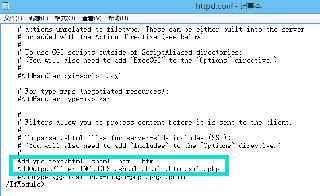Java常用字節(jié)流和字符流實(shí)例匯總
IO流(輸入流、輸出流)
字節(jié)流、字符流
1.字節(jié)流:
InputStream、OutputStream InputStream抽象了應(yīng)用程序讀取數(shù)據(jù)的方式; OutputStream抽象了應(yīng)用程序?qū)懗鰯?shù)據(jù)的方式;2.EOF=End 讀到-1就讀到結(jié)尾
3.輸入流的基本方法:
int b=in.read();讀取一個(gè)字節(jié)無符號(hào)填充到int低八位;-1是EOF; in.read(byte[] buf) in.read(byte[] buf,int start,int size)4.輸出流基本方法:
out.write(int b) 寫出一個(gè)byte到流,b的低8位; out.write(byte[] buf) 將buf字節(jié)數(shù)組都寫入到流; out.write(byte[] buf,int start,int size)5.FileInputStream--->具體實(shí)現(xiàn)了在文件上讀取數(shù)據(jù),下面請(qǐng)看最簡(jiǎn)單的文件讀取:
package com.wxd.test2;import java.io.FileInputStream;import java.io.IOException;public class IOUtil { /** * 讀取指定文件內(nèi)容,按照16進(jìn)制輸出到控制臺(tái) * 并且每輸出10個(gè)byte換行 * @param fileName */ public static void printHex(String fileName) throws IOException { //把文件作為字節(jié)流進(jìn)行讀操作 FileInputStream in =new FileInputStream(fileName); int b; int i=1; while ((b=in.read())!=-1){ if(b<=0xf){//單位數(shù)前面補(bǔ)0System.out.print(0); } System.out.print(Integer.toHexString(b)+' '); if(i++%10==0){System.out.println(); } } in.close(); }}
6.FileOutputStream實(shí)現(xiàn)了向文件中寫出byte數(shù)據(jù)的方法:
package com.wxd.test2;import java.io.FileOutputStream;import java.io.IOException;public class FileOutDemo1 { public static void main(String[] args) throws IOException{ //如果該文件不存在則直接創(chuàng)建,如果存在刪除后創(chuàng)建 FileOutputStream out=new FileOutputStream('demo/out.dat'); out.write(’A’);//寫出了‘A’字符的低八位 out.write(’B’);//寫出了‘B’字符的低八位 int a=10;//write只能寫低八位寫一個(gè)int需要寫四次每次8位 out.write(a>>>24); out.write(a>>>16); out.write(a>>>8); out.write(a); byte[] zg='中國(guó)'.getBytes('UTF-8'); out.write(zg); out.close(); IOUtil.printHex('demo/out.dat'); }}
7.DataOutputStream/DataInputStream對(duì)“流”功能的擴(kuò)展,可以更加方便的讀取int,long,字符等類型數(shù)據(jù):
writeInt()/writeDouble()/writeUTF()
package com.wxd.test2;import java.io.DataOutputStream;import java.io.FileOutputStream;import java.io.IOException;public class DosDemo { public static void main(String[] args) throws IOException { String file='demo/dos.dat'; DataOutputStream dos=new DataOutputStream(new FileOutputStream(file)); dos.writeInt(10); dos.writeInt(-10); dos.writeLong(10l); dos.writeDouble(10.5); //采用UTF-8編碼寫出 dos.writeUTF('中國(guó)'); //采用utf-16be編碼寫出 dos.writeChars('中國(guó)'); dos.close(); }}
package com.wxd.test2;import java.io.DataInputStream;import java.io.FileInputStream;import java.io.IOException;public class DisDemo { public static void main(String[] args) throws IOException { String file='demo/dos.dat'; DataInputStream dis=new DataInputStream(new FileInputStream(file)); int i=dis.readInt();//其實(shí)做了4次read,因?yàn)閕nt是32位 System.out.println(i); i=dis.readInt(); System.out.println(i); long l=dis.readLong();//其實(shí)做了8次read,應(yīng)為long是64位 System.out.println(l); double d=dis.readDouble(); System.out.println(d); String s=dis.readUTF(); System.out.println(s); dis.close(); }}
8.BufferedInputStream&BufferedOutputStrean這兩個(gè)流為IO提供了帶緩沖區(qū)的操作,一般打開文件進(jìn)行寫入或讀取操作時(shí),都會(huì)加上緩沖,這種流模式提高了IO性能
從應(yīng)用程序中把數(shù)據(jù)放入文件,相當(dāng)于將一缸水倒入到另一個(gè)缸中:
FileOutputStream--->write()方法相當(dāng)于一滴一滴地把水轉(zhuǎn)移過去 DataOutputStream--->writeXxx()方法會(huì)方便一些,相當(dāng)于一瓢一瓢的把水轉(zhuǎn)移過去 BufferedOutputStream--->write()方法相當(dāng)于一瓢一瓢先放入桶中,再從桶中倒入缸中/*** *進(jìn)行文件的拷貝,利用帶緩沖的字節(jié)流 * @param srcFile * @param destFile * @throws IOException */ public static void copyFileByBuffer(File srcFile,File destFile) throws IOException{ if(!srcFile.exists()){ throw new IllegalArgumentException('文件:'+srcFile+'不存在'); } if(!srcFile.isFile()){ throw new IllegalArgumentException(srcFile+'不是文件!'); } BufferedInputStream bis=new BufferedInputStream(new FileInputStream(srcFile)); BufferedOutputStream bos=new BufferedOutputStream(new FileOutputStream(destFile)); int c; while ((c=bis.read())!=-1){ bos.write(c); bos.flush();//刷新緩沖區(qū),否則寫入不到; } bis.close(); bos.close(); }
字符流
1.編碼問題
2.認(rèn)識(shí)文本和文本文件
3.Java的文本(char)是16位無符號(hào)的整數(shù),是字符的unicode編碼(雙字節(jié)編碼)文件是byte byte byte...的數(shù)據(jù)序列
文本文件是文本(char)序列按照某種編碼方案(utf-8,utf-16be,gbk)序列化為byte的存儲(chǔ)
4.字符流(Reader Writer):--->操作的是文本文件
字符的處理,一次處理一個(gè)字符
字符的底層任然是基本的字節(jié)序列
字符流的基本實(shí)現(xiàn)
InputStreamReader 完成byte流解析為char流,按照編碼解析
OutputStreamWriter 提供char流到byte流,按照編碼處理
package com.wxd.test2;import java.io.*;public class IsrAndOswDemo { public static void main(String[] args) throws IOException{ //InputStreamReader被稱為橋梁流 FileInputStream in=new FileInputStream('demotest.txt');//默認(rèn)項(xiàng)目的編碼,操作的時(shí)候要寫文件本身的編碼 InputStreamReader isr=new InputStreamReader(in,'utf-8'); FileOutputStream out=new FileOutputStream('demotest2.txt'); OutputStreamWriter osw=new OutputStreamWriter(out,'utf-8');// int c;// while ((c=isr.read())!=-1){// System.out.print((char)c);// } char[] buffer=new char[8*1024]; int c; //批量讀取,放入buffer這個(gè)字符數(shù)組,從第0個(gè)位置開始放置,最多放buffe.length個(gè) //返回的是讀到的字符的個(gè)數(shù) while ((c=isr.read(buffer,0,buffer.length))!=-1){ String s=new String(buffer,0,c); System.out.println(s); osw.write(buffer,0,c); osw.flush(); } isr.close(); osw.close(); }}
5.FileReader/FileWriter(這種方式bu)
package com.wxd.test2;import java.io.FileReader;import java.io.FileWriter;import java.io.IOException;public class FrAndFwDemo { public static void main(String[] args) throws IOException{ FileReader fr=new FileReader('demotest.txt'); FileWriter fw=new FileWriter('demotext2.txt',true);//設(shè)置為true在后面追加 char[] buffer=new char[2056]; int c; while ((c=fr.read(buffer,0,buffer.length))!=-1){ fw.write(buffer,0,c); fw.flush(); } fr.close(); fw.close(); }}
6.字符流的過濾器
BufferedReader ----->readLine一次讀一行
BufferedWriter/PrintWriter ---->寫一行
package com.wxd.test2;import java.io.*;public class BrAndBwOrPwDemo { public static void main(String[] args) throws IOException { //對(duì)文件進(jìn)行讀寫操作 BufferedReader br = new BufferedReader(new InputStreamReader(new FileInputStream('demotest.txt'))); /*BufferedWriter bw=new BufferedWriter(new OutputStreamWriter(new FileOutputStream('demotest3.txt')));*/ PrintWriter pw = new PrintWriter('demotest3.txt'); String line; while ((line = br.readLine()) != null) { System.out.println(line);//一次讀一行,并不能識(shí)別換行 /*bw.write(line); //單獨(dú)寫出換行操作 bw.newLine(); bw.flush();*/ pw.println(line); pw.flush(); } br.close();// bw.close(); pw.close(); }}
以上就是本文的全部?jī)?nèi)容,希望對(duì)大家的學(xué)習(xí)有所幫助,也希望大家多多支持好吧啦網(wǎng)。
相關(guān)文章:
1. .Net Core和RabbitMQ限制循環(huán)消費(fèi)的方法2. jsp文件下載功能實(shí)現(xiàn)代碼3. ASP動(dòng)態(tài)網(wǎng)頁制作技術(shù)經(jīng)驗(yàn)分享4. JSP之表單提交get和post的區(qū)別詳解及實(shí)例5. Xml簡(jiǎn)介_動(dòng)力節(jié)點(diǎn)Java學(xué)院整理6. vue3+ts+elementPLus實(shí)現(xiàn)v-preview指令7. phpstudy apache開啟ssi使用詳解8. jsp實(shí)現(xiàn)登錄驗(yàn)證的過濾器9. 詳解瀏覽器的緩存機(jī)制10. 如何在jsp界面中插入圖片

 網(wǎng)公網(wǎng)安備
網(wǎng)公網(wǎng)安備